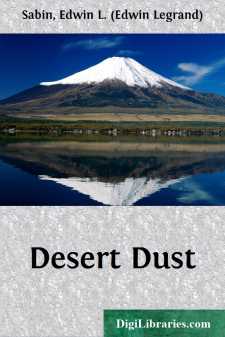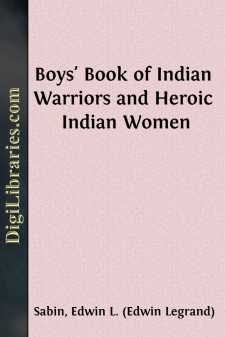Categories
- Antiques & Collectibles 13
- Architecture 36
- Art 48
- Bibles 22
- Biography & Autobiography 813
- Body, Mind & Spirit 142
- Business & Economics 28
- Children's Books 15
- Children's Fiction 12
- Computers 4
- Cooking 94
- Crafts & Hobbies 4
- Drama 346
- Education 46
- Family & Relationships 57
- Fiction 11828
- Games 19
- Gardening 17
- Health & Fitness 34
- History 1377
- House & Home 1
- Humor 147
- Juvenile Fiction 1873
- Juvenile Nonfiction 202
- Language Arts & Disciplines 88
- Law 16
- Literary Collections 686
- Literary Criticism 179
- Mathematics 13
- Medical 41
- Music 40
- Nature 179
- Non-Classifiable 1768
- Performing Arts 7
- Periodicals 1453
- Philosophy 64
- Photography 2
- Poetry 896
- Political Science 203
- Psychology 42
- Reference 154
- Religion 513
- Science 126
- Self-Help 84
- Social Science 81
- Sports & Recreation 34
- Study Aids 3
- Technology & Engineering 59
- Transportation 23
- Travel 463
- True Crime 29
Desert Dust
Description:
Excerpt
A PAIR OF BLUE EYES
In the estimate of the affable brakeman (a gentleman wearing sky-blue army pantaloons tucked into cowhide boots, half-buttoned vest, flannel shirt open at the throat, and upon his red hair a flaring-brimmed black slouch hat) we were making a fair average of twenty miles an hour across the greatest country on earth. It was a flat country of far horizons, and for vast stretches peopled mainly, as one might judge from the car windows, by antelope and the equally curious rodents styled prairie dogs.
Yet despite the novelty of such a ride into that unknown new West now being spanned at giant’s strides by the miraculous Pacific Railway, behold me, surfeited with already five days’ steady travel, engrossed chiefly in observing a clear, dainty profile and waiting for the glimpses, time to time, of a pair of exquisite blue eyes.
Merely to indulge myself in feminine beauty, however, I need not have undertaken the expense and fatigue of journeying from Albany on the Hudson out to Omaha on the plains side of the Missouri River; thence by the Union Pacific Railroad of the new transcontinental line into the Indian country. There were handsome women a-plenty in the East; and of access, also, to a youth of family and parts. I had pictures of the same in my social register. A man does not attain to twenty-five years without having accomplished a few pages of the heart book. Nevertheless all such pages were—or had seemed to be—wholly retrospective now, for here I was, advised by the physicians to “go West,” meaning by this not simply the one-time West of Ohio, or Illinois, or even Iowa, but the remote and genuine West lying beyond the Missouri.
Whereupon, out of desperation that flung the gauntlet down to hope I had taken the bull by the horns in earnest. West should be full dose, at the utmost procurable by modern conveyance.
The Union Pacific announcements acclaimed that this summer of 1868 the rails should cross the Black Hills Mountains of Wyoming to another range of the Rocky Mountains, in Utah; and that by the end of the year one might ride comfortably clear to Salt Lake City. Certainly this was “going West” with a vengeance; but as appeared to me—and to my father and mother and the physicians—somewhere in the expanse of brand new Western country, the plains and mountains, I would find at least the breath of life.
When I arrived in Omaha the ticket agent was enabled to sell me transportation away to the town of Benton, Wyoming Territory itself, six hundred and ninety miles (he said) west of the Missouri.
Of Benton I had never heard. It was upon no public maps, as yet. But in round figures, seven hundred miles! Practically the distance from Albany to Cincinnati, and itself distant from Albany over two thousand miles! All by rail.
Benton was, he explained, the present end of passenger service, this August. In another month—and he laughed.
“Fact is, while you’re standing here,” he alleged, “I may get orders any moment to sell a longer ticket....





